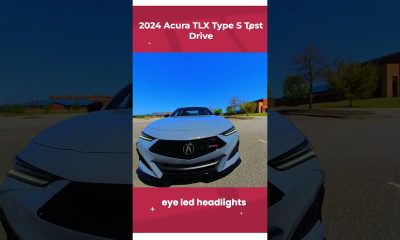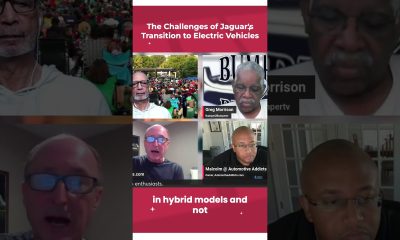Transportation
D.C. Airports Among Worst for Summer Air Travel
WASHINGTON INFORMER — Summer is here and the time is right for … Amtrak? Greyhound?
Summer is here and the time is right for … Amtrak? Greyhound?
Well, if you’re one who wish to avoid delays, that may be the way to go because Reagan Washington National and Dulles International have been ranked among some of the worst airports for on-time summer travel.
Reagan is the eighth-worst airport for delays in the nation for summer travel, according to a new study issued by comparecards.com.
Making matters more difficult for District-area travelers, Dulles trailed only Cincinnati for the worst year-over-year improvements.
Using airport arrival data for the 50 busiest US airports from the U.S. Department of Transportation, compare.com officials said they determined which airports tend to suffer the most delays during the summer travel season — which includes the months of June, July and August.
Ten years of monthly data (2009 — 2018) was averaged across seasons and summer months.
Compare.com found that Most of the airports with the worst track records for on-time arrivals have a few things in common.
They’re in the northeastern part of the country:
“All but two of the eight worst airports are found between Washington, D.C., and Boston. That makes for some incredibly crowded airspace in that neck of the woods, and all it really takes is one poorly-timed summer thunderstorm to throw flights off schedule,” according to the study.
They’re among the nation’s busiest:
“The five airports with the worst on-time records all rank among the nation’s 20 busiest airports. Interestingly, however, Atlanta’s Hartsfield-Jackson Airport — for many years the busiest airport in the world — had a strong on-time record. Its summertime on-time arrival rate was the 14th best among the nation’s 50 busiest airports,” study authors said.
They’re hubs for major airlines:
“Hubs vary by airline, but the worst offenders in the on-time surveys all serve as hubs for at least one major airline: Newark-Liberty (United), LaGuardia (American, Delta), San Francisco (United), JFK (American, Delta, JetBlue), and Boston (Delta, JetBlue). Being a hub means more traffic going to and from more different places — and a lot more things that can go wrong and cause delays,” the study authors said.
They’re along the coasts:
Nine of the 10 cities with the worst on-time arrival track record in the summertime are either on the east or west coast — only Chicago O’Hare, the sixth worst, isn’t in a state that borders an ocean.
“We grin and we bear it,” said Oliver Robertson, a Southeast, D.C. resident who said he and his family usually take two summer trips per year.
“We know that there will be delays — some longer than others — but we can’t let that stop our plans nor should anyone else,” Robertson said.
Michael Priore, who lives in northeast D.C., said the delays are sometimes interminable.
“I’ve been considering driving this year even though gas prices tend to go up in the summer and even though I’d probably need a few extra days off work, but the crowded airports, especially at Reagan, and then the hassle of going through security and fighting to get to your gate only to find that the flight is delayed or even canceled, is just not worth it anymore,” Priore said.
“There’s also Amtrak and Greyhound,” he said.
This article originally appeared in the Washington Informer.
Bay Area
Port of Oakland Commission Votes to Change Oakland Airport to ‘San Francisco Bay Oakland International Airport’
The Port of Oakland Commission voted unanimously to change the name of Metropolitan Oakland International Airport to San Francisco Bay Oakland International Airport at a commission meeting Thursday afternoon. The Port initially announced the name change on March 29, claiming that the change will attract more passengers and enhance the airport’s visibility. They contend that the airport often gets neglected by the public’s lack of knowledge of Oakland’s proximity to San Francisco.
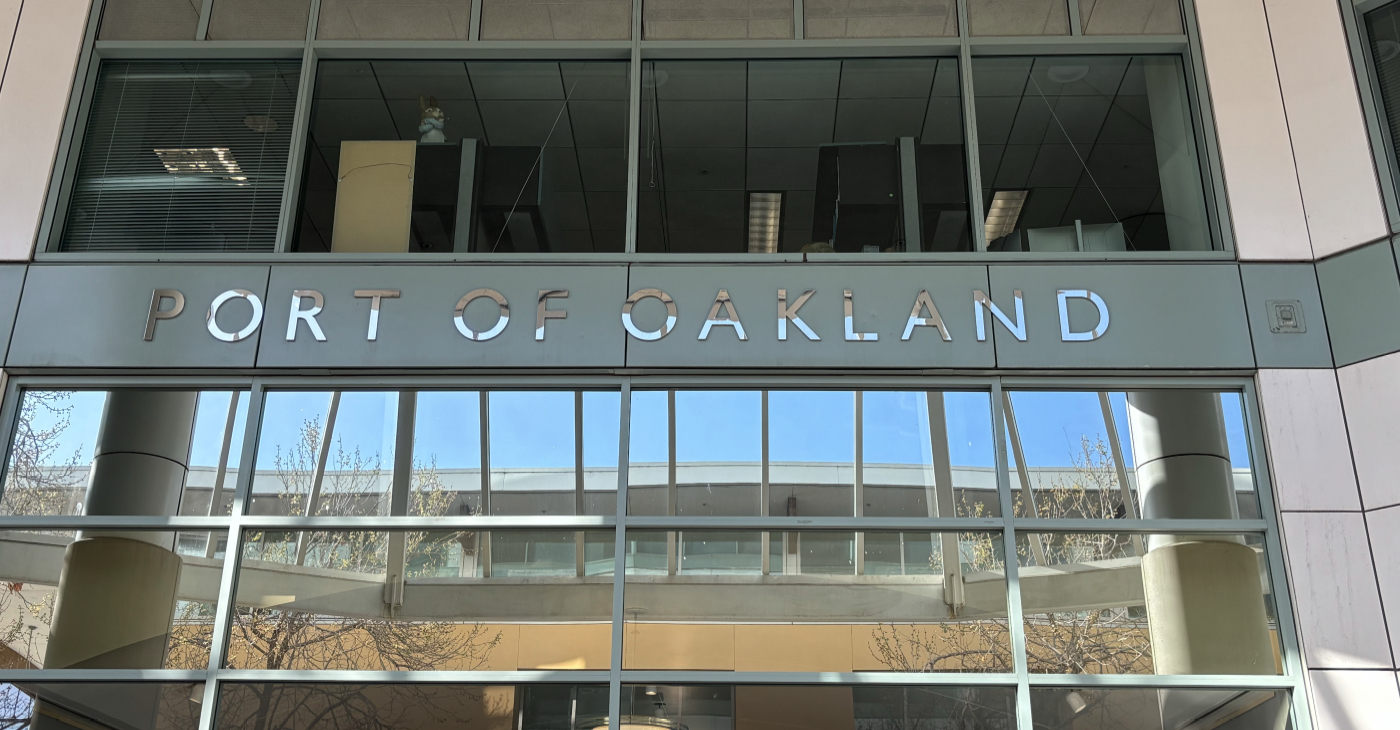
By Magaly Muñoz
The Port of Oakland Commission voted unanimously to change the name of Metropolitan Oakland International Airport to San Francisco Bay Oakland International Airport at a commission meeting Thursday afternoon.
The Port initially announced the name change on March 29, claiming that the change will attract more passengers and enhance the airport’s visibility. They contend that the airport often gets neglected by the public’s lack of knowledge of Oakland’s proximity to San Francisco.
“We want people to know where Oakland is and how beautiful our city is. We want them to visit, we want them to spend their money, and we want to keep our money into our local economy,” Port Commission President Barbara Leslie said at the meeting.
The commissioners shared anecdotal experiences and research to explain how this new name change will elevate and add to the growth of Oakland, not take away from their Bay Area neighbors.
The Port claimed that local residents had been asking for more options in domestic and international flights, but in order to do that, outside travelers need to be aware of Oakland’s presence first.
Since the announcement of the new name, San Francisco leaders strongly opposed the suggestion for a change, the City Attorney going as far as threatening legal action.
SF City Attorney David Chiu announced Monday that his team sent a letter to the Port of Oakland, writing that if Oakland goes forward with the name change, the city will go forward with a lawsuit to prevent the use of their trademarked name.
San Francisco owns U.S. federal trademark registrations for the marks “San Francisco International Airport”, the letter says.
Chiu further claimed that the name change will only cause confusion and chaos for travelers who are used to seeing the San Francisco name in the SFO trademark.
“We want to see the entire Bay Area thrive as a tourist destination and expand our offerings to visitors, but this proposal is not a legal or practical way to go about it. If Oakland moves forward with this proposal, San Francisco will pursue legal action to prevent misuse of our trademark,” Chiu said.
SF Mayor London Breed joined Chiu’s letter, stating that Oakland does not need to add the internationally popular city to its brand in order to grow its services.
“[Oakland] is rich in culture and wonderful people and has its own unique identity. It does not need the name San Francisco as part of its airport to stand out,” Breed wrote.
The Port defended its proposed actions, saying that if the vote did go forward, they would “take all appropriate measures to defend its right to use this accurate geographic identifier.”
“The proposed name modification will clarify, not confuse. The new name identifies where OAK is actually located, which is on the San Francisco Bay,” a spokesperson said on behalf of the Port.
Support for the name change extends beyond the Port. Several regional leaders, airlines and community members have come out in support of the name change, including Oakland Mayor Sheng Thao.
“This adjustment isn’t just about signage—it’s about inviting travelers to discover all that Oakland and the region have to offer. From our local dining scene to unique shopping spots and cozy hotels, there’s something here for everyone. Let’s work together to ensure that Oakland Airport continues to serve as a welcoming gateway for visitors and a source of pride for our community,” Thao said.
Because of public outcry amongst residents and leaders in Oakland and San Francisco before and during the Commission meeting, the Board decided to extend the second reading for the proposed name change from the end of April to the first meeting in May. This decision will allow commissioners to connect with community groups and leaders over their concerns for the change.
The Port Commission is scheduled to hold a second reading of the proposed name change on May 9.
Bay Area
Oakland Finishes Final Draft of Downtown Specific Plan for Potential City Improvements
In late March, Oakland’s city administration announced the final draft of their Downtown Specific Plan, a blueprint for city improvements and developments over the next 20 years. The comprehensive 474-page plan lays out policies for downtown developments that will increase economic, social and cultural, and communal opportunities for residents and workers who frequent this essential hub in Oakland.
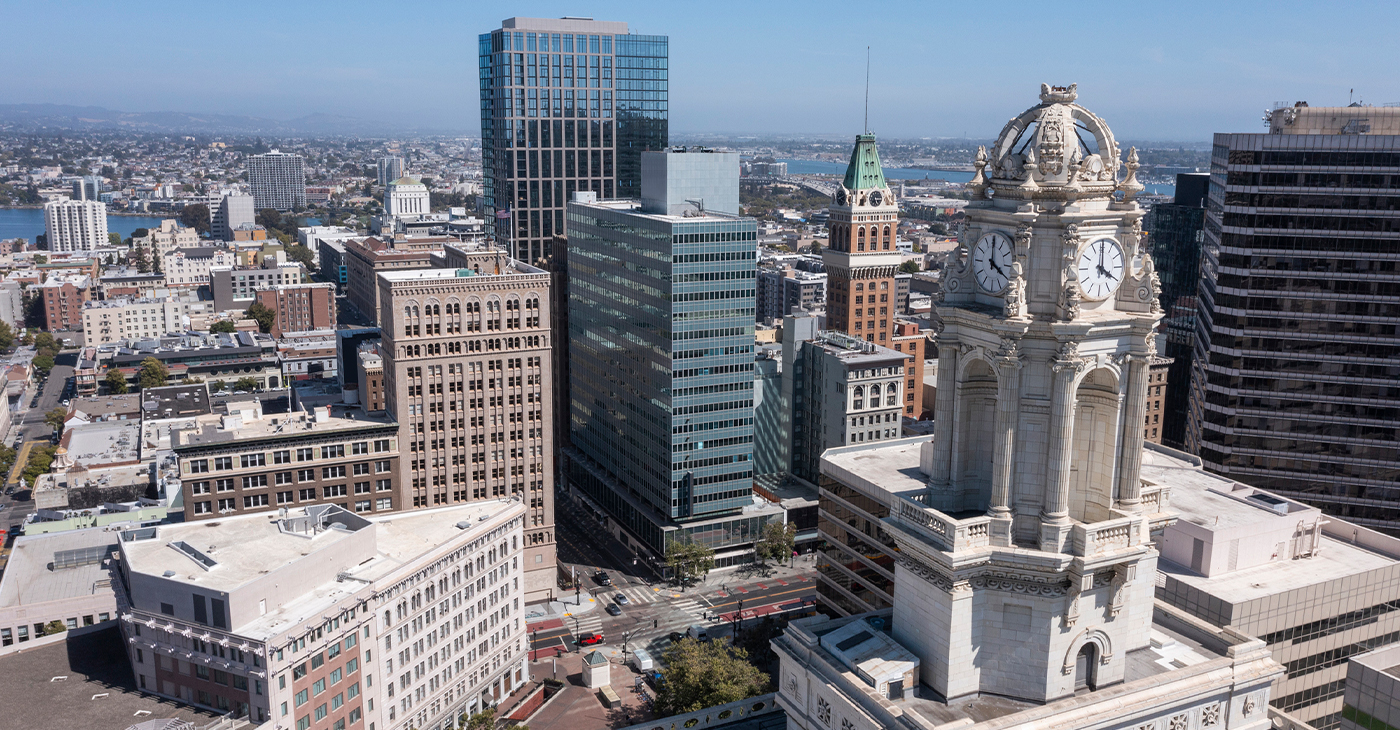
By Magaly Muñoz
In late March, Oakland’s city administration announced the final draft of their Downtown Specific Plan, a blueprint for city improvements and developments over the next 20 years.
The comprehensive 474-page plan lays out policies for downtown developments that will increase economic, social and cultural, and communal opportunities for residents and workers who frequent this essential hub in Oakland.
Several departments over the course of eight years developed the plan, with two phases that emphasized a need for community input from local stakeholders, such as leaders and residents, and a focus on the role of social and racial equity in past and future developments.
Throughout the extensive plan, the concept of equity for marginalized communities is embedded with each goal and priority for the improvements to downtown. It acknowledges that social and racial barriers are preventing these communities from thriving on an equal playing field.
The authors identified six key disparities, or ‘equity indicators’, that set the baseline for how success will be measured for the improvements. These indicators include the burden of housing costs, homelessness, displacement, disconnected youth, unemployment rate and median income.
The plan is also broken up into chapters, each describing a major issue or topic that is plaguing downtown residents and workers, such as mobility, culture preservation, community health and sustainability, and land use and urban design.
Within each chapter, the authors dedicate a section to the impacts of the COVID-19 pandemic for the various areas of interest, illustrating how disparities and inequities increased before and after the disease’s peak.
Two major issues highlighted in the plan are economic opportunity and housing and homelessness. Both of these issues have been aggravated by the pandemic and require substantial support and resources to move forward.
Many reports coming out of the commercial and residential districts downtown have blamed the rise in crime and cost of living as reasons for leaving Oakland for other cities or closing down indefinitely.
The plan attributes rising rents of both residential and commercial properties to the displacement of local businesses and entrepreneurs. Downtown also has an imbalance in the jobs to housing ratio, which limits access to jobs as commuting distances increase.
Other concerns for the local economy are barriers to employment opportunities for workers of color, non-English speakers, and those with limited access to transportation. As stated in the plan, downtown also has a lack of vacancies near public transit hubs, such as BART, bus stops or ferry terminals, which could save workers money and time for their commutes into the city.
According to the downtown plan, the average unemployment rate for the white population was 5.9%, but the Asian population was at 6.7%, and for the Black population it was even higher at 10.4%.
The proposed solutions for the lack of economic prosperity include providing assistance to local businesses owned by people of color, reinforcing downtown as the ‘place to be’ for nightlife entertainment, and building businesses closer to public transit.
The addition of over 18.3 million (m) sq. ft. of new commercial space, 1.3m sq. ft. of new institutional space, and 500,000 sq. ft. of new industrial space, could potentially create almost 57,000 jobs downtown.
Housing and homelessness, issues closely tied to economic prosperity, are top concerns for Oakland residents. High rents have led to displacement and homelessness for those unable to keep up with the rising costs of the Bay Area.
Over 5,000 people are currently experiencing homelessness in Oakland, according to 2022 Point In Time data. 60% of this population is Black despite only making up nearly 20% of the total city population.
The plan explains that by adding nearly 29,000 new homes and expanding affordable housing units across the city by 2040, this would help alleviate the stress of obtaining and affording a home.
Strategies proposed to tackle the housing and homelessness crisis include increasing renter protections, providing additional shelters and services for homeless residents, and promoting homeownership in downtown with first-time buyer assistance and proactive assistance to vulnerable homeowners.
The plan acknowledges that the implementation of changes and developments amongst the several concerns outlined in the document will take time, both in short and long term periods.
To better explain how and when each project will be addressed over the course of the next two decades, a detailed 123-page graph shows which agencies, potential funding sources, and costs come with the goals.
The Oakland Planning Commission and Landmarks Preservation Advisory Board will each hold public hearings regarding the final draft of the Downtown Plan in May and June.
Bay Area
Bikes Now Allowed on BART Escalators
As of Jan. 1, bikes are allowed on most of the escalators throughout BART, a new rule change that aims to make it easier for cyclists to board trains. Bikes will only remain banned from BART’s 10 narrow escalators located at the 19th Street Oakland, Antioch and Oakland Airport Connector stations, according to the transit agency.
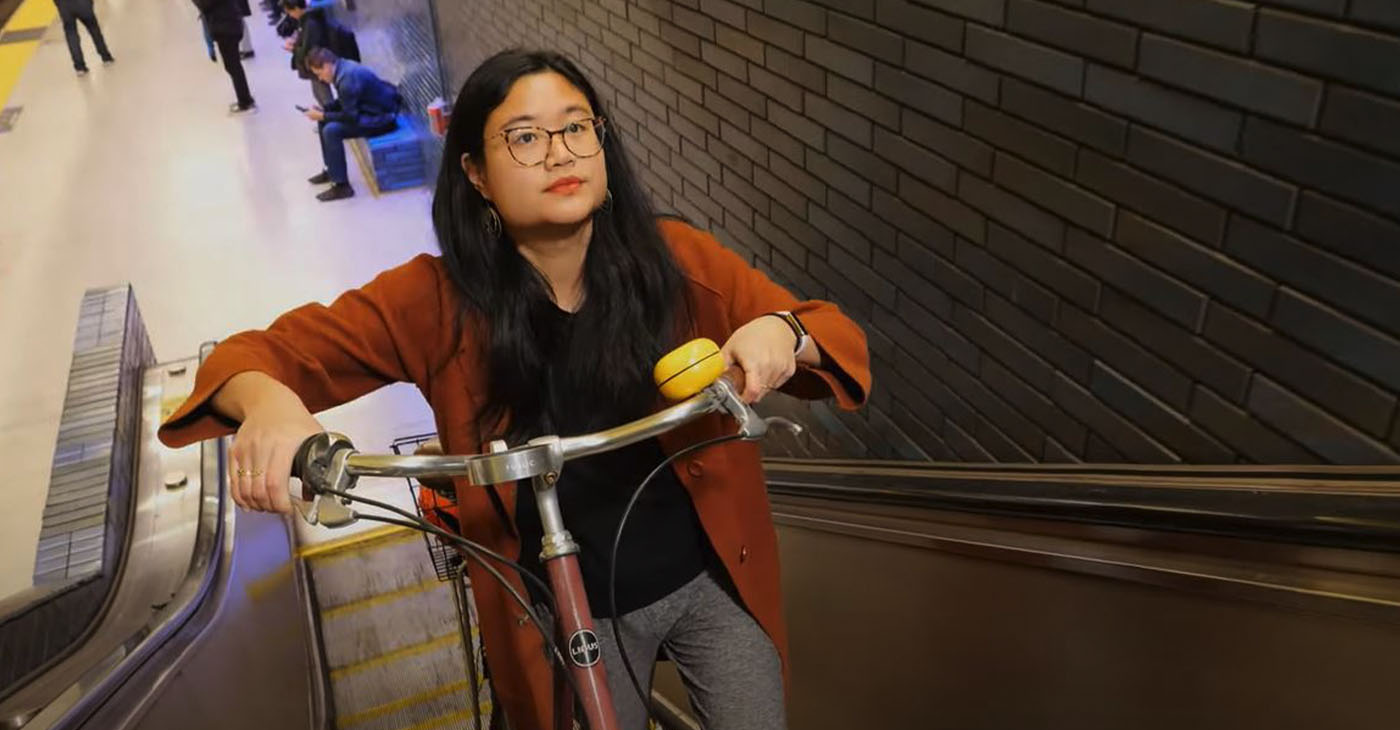
The Richmond Standard
As of Jan. 1, bikes are allowed on most of the escalators throughout BART, a new rule change that aims to make it easier for cyclists to board trains.
Bikes will only remain banned from BART’s 10 narrow escalators located at the 19th Street Oakland, Antioch and Oakland Airport Connector stations, according to the transit agency.
BART is also now allowing bikes on all train cars except for the first car. Bikes were previously banned from the first three cars during commute times.
Ten years ago, BART ended a ban on bikes on the transit system during the commute hours. Over the last decade, the transit agency noted the growing popularity of larger, heavier bicycles.
“Carrying bikes up and down stairwells can be difficult and not all bikes fit in our elevators,” said BART Director Rebecca Saltzman. “Updating our rules will make BART easier to use for cyclists and families bringing bikes on the train. Bikes play an important role in getting people out of their cars and on public transit and these updated rules encourage environmentally friendly multimodal travel options.”
BART encouraged riders to use their best judgment when using escalators. The transit agency released a new video detailing safety tips for bringing bikes on escalators in the system.
BART offers this Elevator Dimension Guide to provide cyclists with dimensions of each elevator in the system, including measurements of the door, width, length, and diagonal space across the floor.
-

 Community3 weeks ago
Community3 weeks agoFinancial Assistance Bill for Descendants of Enslaved Persons to Help Them Purchase, Own, or Maintain a Home
-

 Business3 weeks ago
Business3 weeks agoV.P. Kamala Harris: Americans With Criminal Records Will Soon Be Eligible for SBA Loans
-

 Activism4 weeks ago
Activism4 weeks agoOakland Post: Week of April 10 – 16, 2024
-

 Community3 weeks ago
Community3 weeks agoAG Bonta Says Oakland School Leaders Should Comply with State Laws to Avoid ‘Disparate Harm’ When Closing or Merging Schools
-

 Activism2 weeks ago
Activism2 weeks agoOakland Post: Week of April 24 – 30, 2024
-

 City Government3 days ago
City Government3 days agoCourt Throws Out Law That Allowed Californians to Build Duplexes, Triplexes and RDUs on Their Properties
-

 Community2 weeks ago
Community2 weeks agoRichmond Nonprofit Helps Ex-Felons Get Back on Their Feet
-

 Community2 weeks ago
Community2 weeks agoOakland WNBA Player to be Inducted Into Hall of Fame

